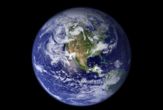Quarter of Species Gone by 2050

Get the world’s most fascinating discoveries delivered straight to your inbox.
You are now subscribed
Your newsletter sign-up was successful
Want to add more newsletters?
Join the club
Get full access to premium articles, exclusive features and a growing list of member rewards.
Using several models that project habitat changes, migration capabilities of various species, and related extinctions in 25 "hotspots," scientists predict that a quarter of the world's plant and vertebrate animal species would face extinction by 2050.
A report detailing the projections was released today.
Biodiversity hotspots are some of the richest and most threatened biological pools on Earth. They contain 44 percent of plant and 35 percent of the Earth's vertebrate species on only 1.4 percent of the Earth's land. Each hotspot contains its own set of unique species.
"Climate change is rapidly becoming the most serious threats to the planet's biodiversity," said Jay Malcolm, an assistant forestry professor at the University of Toronto. "This study provides even stronger scientific evidence that global warming will result in catastrophic species loss across the planet."
In the most dramatic of the scenarios, for which carbon dioxide levels grow to double that of today's levels, the models forecasted a potential loss of 56,000 plant species and 3,700 vertebrate species in the hotspots.
Such a climate scenario could become a reality in only 50 years, the study estimates.
"These species lose their last options if we allow climate change to continue unchecked," said Lara Hansen, chief climate scientist at the global conservation group World Wildlife Fund. "Keeping the natural wealth of this planet means we must avoid dangerous climate change—and that means we have got to reduce carbon dioxide emissions."
Get the world’s most fascinating discoveries delivered straight to your inbox.
The study found that certain hotspots were especially sensitive to climate change with extinctions sometimes exceeding 2,000 plant species per hotspot. These include the Caribbean, the Tropical Andes, Cape Floristic region of South Africa, Southwest Australia, the Atlantic forests of Brazil, Paraguay, and Argentina.
The results are detailed in the journal Conservation Biology.
Hot Topic
The Controversy
- Conflicting Claims on Global Warming and Why It's All Moot
- Baffled Scientists Say Less Sunlight Reaching Earth
- Scientists Clueless over Sun's Effect on Earth
- Key Argument for Global Warming Critics Evaporates
The Effects
- Seas to Rise
- Ground Collapses
- Allergies Get Worse
- Rivers Melt Sooner in Spring
- Increased Plant Production
- Animals Change Behavior
- Hurricanes Get Stronger
- Lakes Disappear
The Possibilities
- More Rain but Less Water
- Ice-Free Arctic Summers
- Overwhelmed Storm Drains
- Worst Mass Extinction Ever
- A Chilled Planet
Strange Solutions
 Live Science Plus
Live Science Plus











